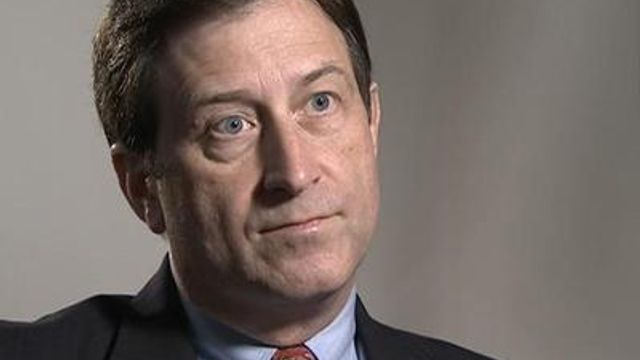Senate panels unveil state budget ideas
Senate budget-writers unveiled draft proposals Friday to eliminate more health positions then Gov. Beverly Perdue recommended in next year's North Carolina state government spending plan, while adding back funds she sought for local mental health agencies.
Posted — UpdatedSeveral budget subcommittees rolled out portions of the roughly $19 billion spending plan to adjust the second year of the two-year budget approved last summer. Analysts have projected a $788 million deficit for the fiscal year that starts in July.
Four subcommittees that met agreed with Perdue to trim spending for dozens of agencies, with the deepest cuts coming in DHHS, which makes up about one-fifth of the state budget.
The draft report by the Senate Appropriations Subcommittee on Health and Human Services found $375 million in net reductions – about $11 million less than Perdue sought – to DHHS' $4.3 billion annual budget.
"It's just this is the first time I've seen this report, and so, there are things that are concerning to me," DHHS Secretary Lanier Cansler said.
Among Cansler's primary concerns is the elimination of 187 positions, up from the 53 in Perdue's budget proposal. While most of the additional job losses are vacancies, Cansler said the money linked to the jobs has been used to help shift workers around to protect vital services.
The co-chairman of the subcommittee said the cuts were spread out, and none was easy.
"You have all the advocates out there pleading for help. It's very difficult," said Sen. William Purcell, D-Scotland. "We're trying to be very frugal and cautious."
The draft supported Perdue's Medicaid fraud initiatives, which are designed to save $36 million, an overhaul of the costly Personal Care Services program for home-bound invalids to save $59 million and service and rate reductions for some mental health services to save $41 million.
The draft also would spend $14.2 million to remove a waiting list for patients seeking help to buy their AIDS prescription drugs and restore $40 million deleted from local mental health offices this year.
The state is banking on additional stimulus money to cover another $430 million in projected Medicaid expenses.
Cansler said, speaking from experience, that he doesn't believe the senators completely understand what's at stake in cutting the budget.
"I served in the legislature for four terms and chaired this committee," he said. "I wish I had done this job before I did that job, because I'd have had a much better understanding of what the real issues were."
The Appropriations Subcommittee on Justice and Public Safety cut $1.3 million from the state's crime Victims Compensation Services fund and refused Perdue's request to restore 18 percent of the state's $150,000 appropriation to the North Carolina Victims Assistance Network.
"I'm sorry these cuts are painful," said subcommittee co-chairwoman Sen. Ellie Kinnaird, D-Orange, suggesting the fat in agencies the panel monitors is gone. "We're past bone. We're cutting into bone."
Tom Bennett, director of the Victims Assistance Network, said the moves make no sense, given that the committee restored funding for efforts to help prisoners get their high school degrees or vocational training and to help some offenders receive alternative sentences to prisons.
"Are we doing it at the price of denying crime victims?" Bennett asked.
The subcommittee also proposed raising $13.6 million in new or increased court fees, including a new $10 fee for someone who wants to legally return to using their former name.
The Appropriations Subcommittee on Education postponed its scheduled Friday morning meeting because senators were still working on details.
All of the subcommittees are expected to meet Monday to vote on their proposals, which will be consolidated into a $19 billion spending plan to go before the full Senate later next week.
Some critics suggested that the process is moving too fast, and items aren't being debated enough.
Few senators actually attended the subcommittee hearing on the DHHS budget, for example, because they had already left town for the weekend. That means many committee members will vote on the draft budget hours after seeing it for the first time.
"If they haven't seen it, it's their problem, their fault. We made it available," Purcell said.
• Credits
Copyright 2024 by WRAL.com and the Associated Press. All rights reserved. This material may not be published, broadcast, rewritten or redistributed.






